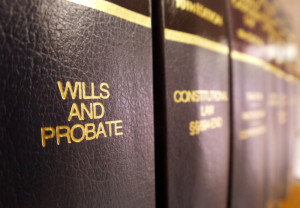Texas Probate Laws
 What happens if your loved one has died without a will? In the State of Texas, the law, the Texas Estates Code, clearly states how the assets of someone that passes away without a will are divided to their family upon death. This is called “dying intestate”. The problem for the heirs of a person who dies without a will is not having access to the assets, the money and property, of the person who died. In the law, this person is referred to as the Decedent. In a situation like this, the heirs would need to file an Heirship Determination Proceeding, and possibly an Administration of the estate of their loved one. The Texas Estates Code gives a lot of details that can be used to solve such a problem, providing necessary procedures to correctly deal with finances and property.
What happens if your loved one has died without a will? In the State of Texas, the law, the Texas Estates Code, clearly states how the assets of someone that passes away without a will are divided to their family upon death. This is called “dying intestate”. The problem for the heirs of a person who dies without a will is not having access to the assets, the money and property, of the person who died. In the law, this person is referred to as the Decedent. In a situation like this, the heirs would need to file an Heirship Determination Proceeding, and possibly an Administration of the estate of their loved one. The Texas Estates Code gives a lot of details that can be used to solve such a problem, providing necessary procedures to correctly deal with finances and property.
However, in order for heirs to obtain access to the assets of the Decedent they must hire an experienced Dallas Probate Attorney that will help solve the problem. This type of case is special, as all the people involved in this situation are usually under a lot of stress and pain that their relative or friend has died. The services of an experienced Dallas Probate Attorney can provide the proper help, and often reduce the stress on the family.
Additionally, under Texas law and local Dallas practice, when there is more than one person who is an heir, hiring an experienced Dallas Probate Attorney is required by the Courts. This is required because the executor or administrator owes a duty to the heirs in an estate, but unless that person is also a lawyer, that person is prohibited by law from representing the other heirs in a Court.
In the case where your loved one had a valid written Will, it’s important to know that any will must be offered for probate within a period of four (4) years after the date of death. The law is quite strict on this amount of time. Although a Will doesn’t have to be probated, your situation should be reviewed carefully in order to make sure that the appropriate probate decision is made in the best interest of the heirs, and according to the law.
If you are out of state, but have a Texas probate matter, an out of state person may be named as an executor or administrator in a Texas probate. However, there are a few requirements that need to be filled, such as naming a resident agent in Texas, among others. The person named as a resident agent in such a case is usually the probate attorney for that case.
What do you do if a Will is probated, but you don’t think the Will is valid? The time limit to contest a Will admitted to probate is two years after a Court admits it to probate, with some exceptions. Texas Estates Code section 256.204. That means a Court has held a hearing and decided that the Will is valid, and should be “probated” or published and its terms followed. The person who wrote the Will is known in the law as the “testator”. A Will may be contested on the grounds that 1) the testator did not have the capacity to make the will, or 2) undue influence was used on the testator to induce the execution of the will in its present form. Both of these are challenging and expensive cases to litigate.
As you can see, probate matters can be complicated. You should contact an experienced Dallas Probate Attorney, who will give you the proper help in dealing with your probate estate problem. Such an attorney can help you as an heir navigate through the Court system, and get access to the assets of your loved one.
You can learn more about Texas probate laws by clicking here.
